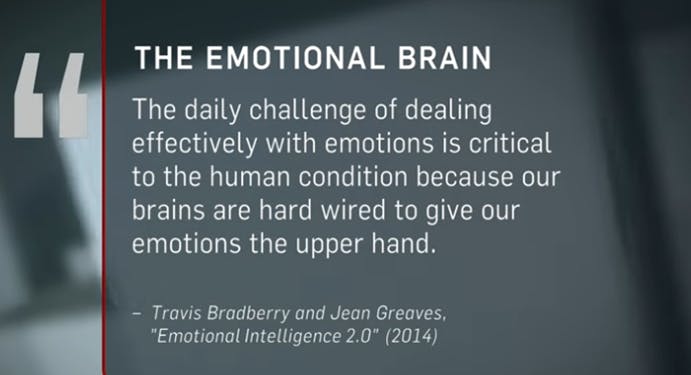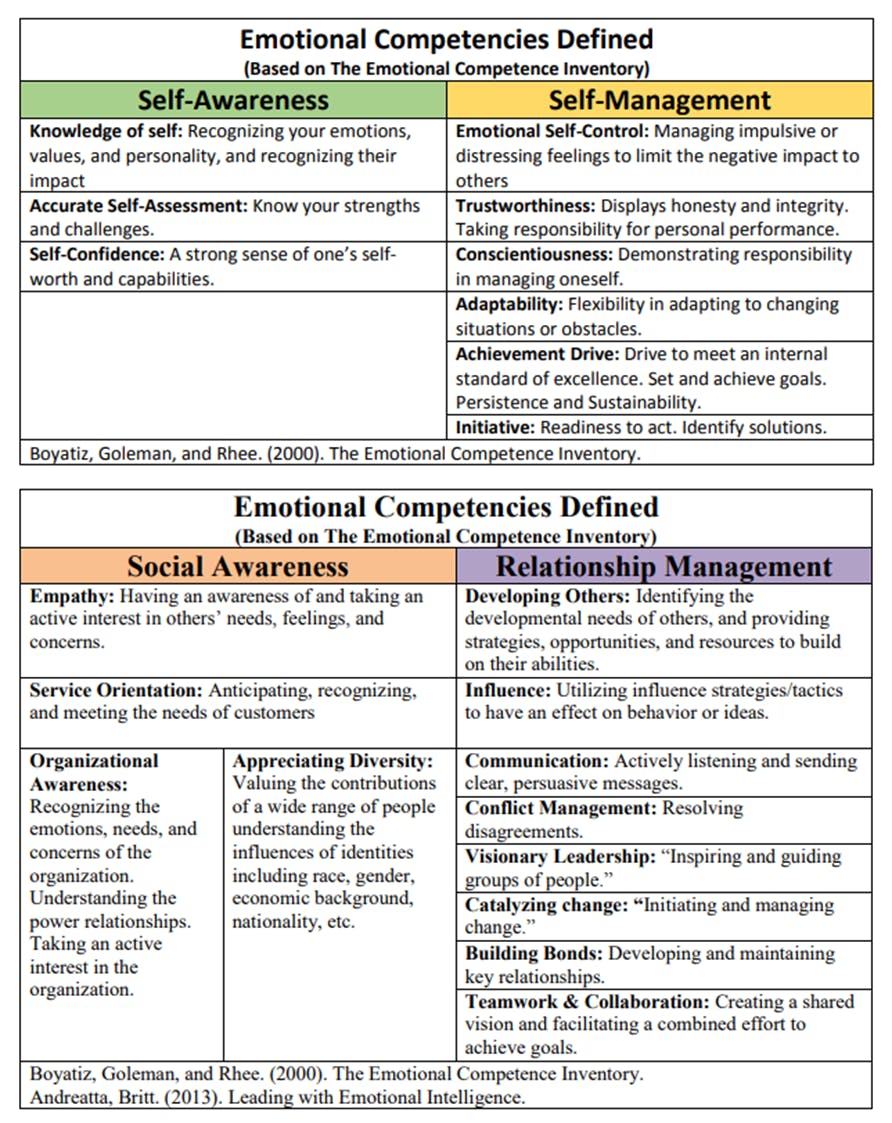By Kenya Carl and Adenike Lanpego
May 22, 2022
Employees who exhibit high levels of Emotional Intelligent (EQ) are increasingly vital throughout an organization, especially in leadership positions. The workforce has changed generationally as employees are motivated by things that greatly differ from what motivated the generations before them. This attribute has set the tone and backdrop for a workplace that trains, develops, and rewards highly emotionally intelligent employees and leaders.
Employees seek purpose, fulfillment, and growth in addition to their salaries. They want to be a part of a bigger community, feel like their opinions are heard, and be rewarded for their accomplishments and hard work through salary increases, promotions, and recognitions. In fact, the statistics are clear:
80% of employees with poor manager relationships are disengaged
50% of former employees left their jobs to get away from their manager
33% of a worker’s annual salary is needed to replace just one employee
90% of top performers have above average emotional intelligence
75% of Fortune 500 companies use emotional intelligence training
These statistics demonstrate not only the need for EQ in the workplace but also highlight opportunities for all leaders – managers, directors, and executives - to master EQ thereby greatly benefiting an organization. We will explore the dynamic and powerful effects of EQ in the workplace in subsequent blogs. Let’s first understand the overall benefit of EQ to an organization, attributes and competencies of EQ, and how EQ differs from IQ.
The Benefits of High EQ
With diligence, awareness, and focus a person can develop and greatly increase their EQ to a high level. The incentive to do just that is great because organizations are increasingly passing over potential high IQ employees for those that have high EQ. High EQ employees are consistently better at the following desirable characteristics:
- Handling pressure
- Making decisions
- Handling conflicts
- Being highly motivated
- Responding positively to criticism
An organization that has a great number of high EQ employees, and leaders – managers, directors, executives – is going to have teams and partnerships that maximize their full potential. This type of organization is going to have highly productive teams and leaders, a high percentage of customer satisfaction and retention, positive branding, low employee turnover, increased profits, and a sustainable future. As employees and leaders, our goal should be to master the skills necessary to consistently exhibit high levels of EQ.
What is EQ?
EQ can be defined as the competency to understand one’s emotions and the emotions of others and guide behavior and choices accordingly. It is a collection of natural and learned non-cognitive skills that affect a person's ability to develop and maintain relationships and successfully cope with environmental demands and pressures. A person with a high level of EQ exhibits empathy, intuition, creativity, flexibility, resilience, stress management, and self - control.
The foundation of EQ is emotions. Emotions are the primary driver of a person’s behavior and choices. This is the reason that an extremely smart or high IQ person can consistently exhibit poor behavior and/or make unwise choices.

EQ Competency
The four major areas of EQ are Self Awareness, Self-Management, Social Awareness, and Relationship Management. The competencies needed for EQ are detailed below and taken from The Emotional Competency Inventory by Boyatiz, Goleman, and Rhee (2000) and Leading with Emotional Intelligence by Andreatta Brit (2013).

EQ versus IQ
EQ is the ability to identify emotions, communicate well, have good conflict resolutions skills, exhibit empathy and can control one’s impulses. Evaluating and testing EQ levels is based on solving problems using social and emotional skills, assessing and accounting for one’s behaviors. EQ ability is housed in the malleable portion of the brain which allows the potential for continuous growth and development throughout a person’s lifetime.
IQ is the ability to plan, strategize, understand the abstract idea, and solve problems logically and through knowledge-based learning. Evaluating and testing IQ levels is based on verbal ability and knowledge, reasoning, abstract thinking, and problem-solving. The results are directly affected by economic status, social inequities, access to education, nutrition, and trauma. IQ ability is not easily changed and is mostly cemented during adolescent years.
It is important to understand how EQ and IQ are different. IQ measures a person's intelligence but fails to measure a variety of skills that can lead to many different outcomes in life. Whereas EQ deals with aspects that have greater indicators of personal and professional success.
Achieving High EQ
When a person develops or improves upon their level of EQ there is a cascading effect in every area of their life. Frequent self-assessment and assessment from others yields valuable insight on the areas of gaps in or the lack of a person’s EQ. With awareness and focused effort, the habits that define EQ can be adopted and mastered. High EQ can be achieved throughout all stages of life. Following are some habits associated with high EQ:
- Don't aim for perfection
- Embrace change
- Be empathetic
- Be self-motivated
- Focus on the positive
- Balance work and play
- Know strengths and weaknesses
- Don’t dwell in the past
- Set boundaries
References
Goleman, Daniel. (1998) Working with Emotional Intelligence. New York: Bantam Books.
Bradberry, Travis & Greaves, Jean. (2009). Emotional Intelligence 2.0 San Diego: TalentSmart.
Employee Benefit News, Avoidable Turnover Costing Employers Big, Nick Otto, August 9, 2017 benefitnews.com/news/avoidable-turnover-cos..
